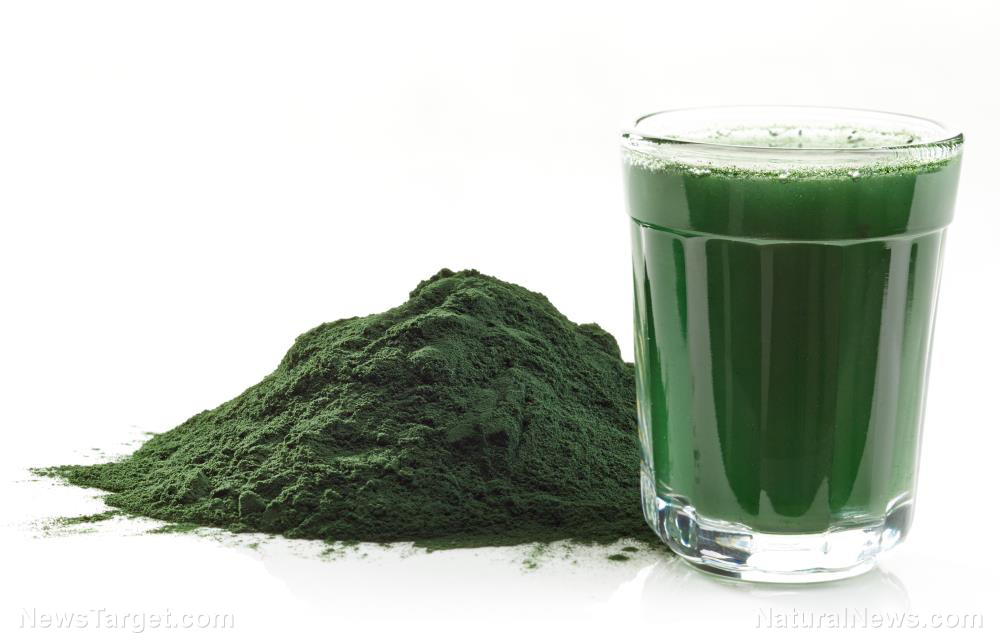Comprehensive scientific study concludes that the beneficial effects of nutritional supplementation persist for more than a decade
11/18/2018 / By Tracey Watson

Anyone who believes in supporting optimal health through supplementation has heard the two basic arguments that those who are opposed to supplements always roll out: Firstly, they insist that if we eat a proper, balanced diet we shouldn’t need any kind of supplementation, and secondly, they warn that many supplements are unregulated and could therefore be dangerous, particularly in high doses. All things considered, they claim, the supplement industry is just one big money-making scam.
It can be incredibly difficult to reason with people like these, but most reasonable, open-minded people would be impressed – and possibly swayed – by the results of a peer-reviewed, randomized, double-blind, placebo-controlled study published in the highly respected journal PLOS one. That study found that not only did the health of a group of seniors given selenium and coenzyme Q10 supplements for four years improve, but astonishingly, they continued to exhibit a 40 percent lower risk of cardiovascular mortality than the placebo group 12 years later!
Study mechanisms
Selenium and coenzyme Q10 are both essential to the healthy functioning of cells, but levels of these minerals generally become depleted in older people. As such, the research team selected 443 healthy elderly Swedes to participate in a study in which they received supplements of these minerals for a four-year period. The participants were closely monitored thereafter, and death certificates and autopsy results were examined to compile their results. The initial study found that the supplements reduced the rate of cardiovascular mortality in the study participants. (Related: Animals raised on organic selenium supplements produce fresher meat.)
Ten years after the initial study, the team published their findings that the group who received the supplements continued to exhibit better health, and then after 12 years, published the following findings:
After 12 years a significantly reduced CV mortality could be seen in those supplemented with selenium and coenzyme Q10, with a CV mortality of 28.1% in the active treatment group, and 38.7% in the placebo group. A multivariate Cox regression analysis demonstrated a reduced CV mortality risk in the active treatment group (HR: 0.59; 95%CI 0.42–0.81; P = 0.001). In those with ischemic heart disease, diabetes, hypertension and impaired functional capacity we demonstrated a significantly reduced CV mortality risk.
The effects of good supplements are real and long-lasting
The study authors noted that significant changes were observed in the initial study in cardiac function, oxidative stress, fibrosis and inflammation levels, which likely explained the major health improvements enjoyed by the participants. And, the fact that these effects persisted for more than a decade after the study ended proves that the changes were permanent and right down at the cellular level. (Related: Battle mental and physical fatigue with these science-backed supplements.)
“The effects are too powerful for simple nutrient replacement,” Dr. Mark Miller, who heads up KAIVITI, a consulting company for the nutrition and wellness industries, told Nutra Ingredients-USA. “I think we need to be creative here and if I was to guess, I think there is a major reset of the drivers for disease and health. So what control mechanism has such long lasting effects? I think the best candidate is epigenetics. It is well-known that altering our genetic software has long-term implications on health. Specifically, it is most likely epigenetic regulation of oxidative stress, inflammation and mitochondrial function.”
This study proves conclusively that taking the right high-quality supplements can have a profound, long-lasting effect on our health, and that they are therefore well worth the investment.
Learn more about the most beneficial supplements at Nutrients.news.
Sources for this article include:
Tagged Under: Coenzyme Q10, health supplements, long-term health, natural remedies, nutrients, prevention, research, selenium, supplementation, supplements, vitmains


















